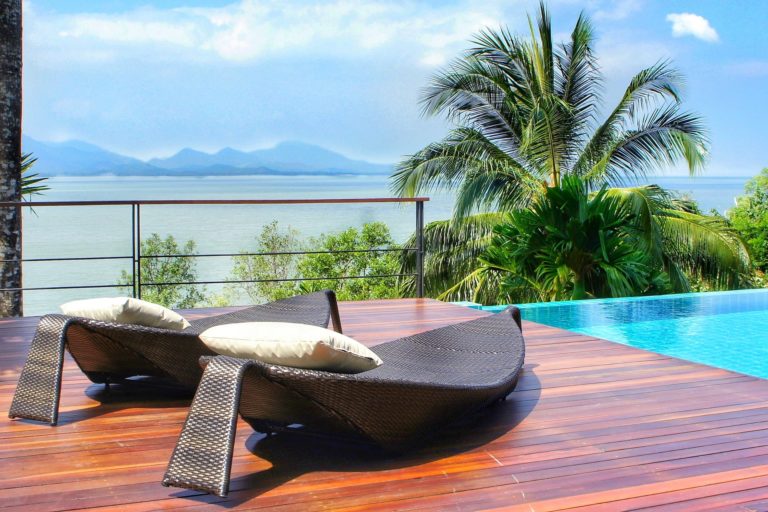
Joie de vivre, an exceptional climate, refined cuisine, and a rich cultural heritage. In 2024, luxury tourism in Spain ascended to new heights, positioning the country as an exclusive destination for the affluent. Spain’s appeal extends far beyond the familiar staples of sun, sea, and paella. The country now offers bespoke, sophisticated experiences tailored to discerning travellers seeking products that stand out. With a portfolio that combines exclusive encounters, premium services, and a strong focus on adapting to the demands of the high-end market, Spain is now competing with iconic destinations like France, Italy, and the United States, offering a unique blend of authenticity, culture, and safety.
Luxury travellers, those with significant purchasing power, prioritise exclusivity and tailor-made experiences. However, even in this elite market, there is a tendency to replicate successful models. According to the “2024 Luxury Holiday Habits” report by Condé Nast Johansens, luxury tourists spend an average of €8,000 per trip, with a strong preference for unique, once-in-a-lifetime experiences. Among their top priorities are Michelin-starred dining, stays in boutique hotels offering distinctive concepts, wellness treatments—with a focus on natural cosmetics—and private excursions that immerse them in local cultures. The modern luxury traveller prefers to engage with authentic, less commercialised aspects of a destination rather than struggle to take a photo alongside dozens of other tourists.
In terms of travel frequency, luxury tourists typically take between three and four trips per year, with September being the peak month, followed by June and May. Their stays tend to range from three to seven nights, although a notable proportion opt for weekend breaks. While families remain an important part of this market, 75% of luxury travellers travel as couples, while 30% choose to travel with friends. In recent years, romantic getaways and intimate group experiences have emerged as dominant trends.
Urban and Rural Destinations
The report also reveals a notable shift in luxury travellers’ preferences: for the first time, urban destinations have surpassed beach locations in terms of popularity. At Arum Group, we understand that the magnetic appeal of cities, combined with their rich cultural heritage, is at the heart of this shift. A significant 65% of luxury travellers now favour cities like Madrid, Barcelona, and Seville, enticed by their unique and authentic cultural, culinary, and artistic opportunities. These destinations not only feature exclusive accommodations and fine dining but also provide singular experiences such as private museum tours, select concerts, and expert-led cultural excursions.
Simultaneously, high-end rural tourism continues to see growth. 48% of luxury tourists are choosing escapes to serene natural settings, which combine privacy, tranquillity, and luxury, often with experiences centred around local gastronomy or viticulture. Destinations such as La Rioja, often referred to as the “Spanish Tuscany”, and the picturesque villages of Castilla y León, offer premium experiences in vineyards, mountain spas, and boutique hotels surrounded by nature.
Recent studies show that 73% of high-net-worth tourists consider gastronomy an essential part of their experience. Spain, a world-renowned culinary destination, is home to 356 Michelin stars spread across 291 restaurants.
In addition to gastronomy, wellness has become an integral component of luxury tourism. The demand for health-focused experiences, ranging from physical rejuvenation to mental well-being, has contributed to the growth of high-end spas and wellness centres in destinations such as Ibiza, Marbella, and the Canary Islands. These locations offer exclusive treatments in idyllic settings, where the combination of sun, sea, and specially designed wellness environments enables travellers to disconnect and recharge.
Finally, 68% of luxury travellers prefer booking directly through luxury hotel websites, while 56% opt for online travel agencies. This shift reflects a desire for greater autonomy and personalisation, with travellers seeking tailored experiences that cater to their individual preferences and requirements.
Spain continues to attract travellers willing to invest in luxury experiences, solidifying its leadership in the global luxury tourism market. However, the sector also faces challenges: these discerning travellers demand privacy and exclusivity, qualities difficult to guarantee in high-traffic destinations. Furthermore, the sector faces increasing pressure to meet specific service and expertise requirements. Are we equipped to meet these demands? This is a question about real estate innovation that we’ll reflect upon further in upcoming posts.



